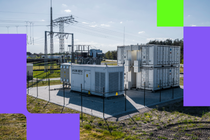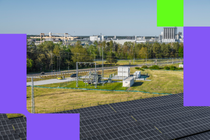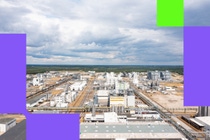About the project
The system installed in Schwarzheide consists of four NAS battery containers and has an energy storage capacity of around six megawatt hours and an output power of one megawatt. NAS batteries are long-term storage systems. They can provide large amounts of electrical energy cost-effectively over a period of six to eight hours and are therefore ideally suited for the integration of renewable energies, especially solar energy. In this way, we are contributing to the energy transition by meeting our customers' needs for stable, safe and efficient energy storage. NAS batteries are manufactured by our partner NGK Insulators Ltd, Japan.




